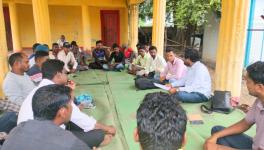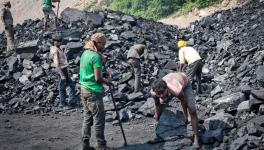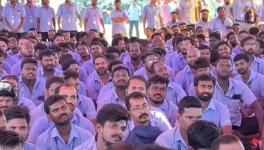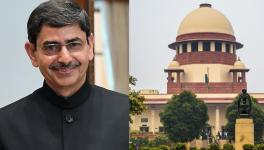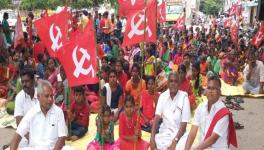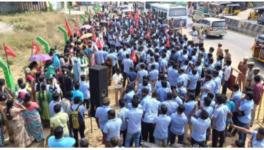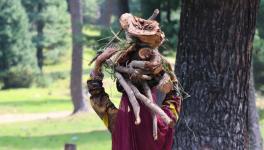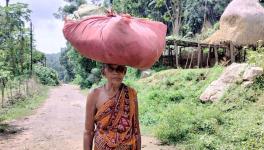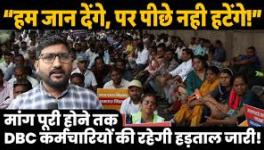Denied Access to own Land, Irula Forest Dwellers Say They Will Fight to the Finish
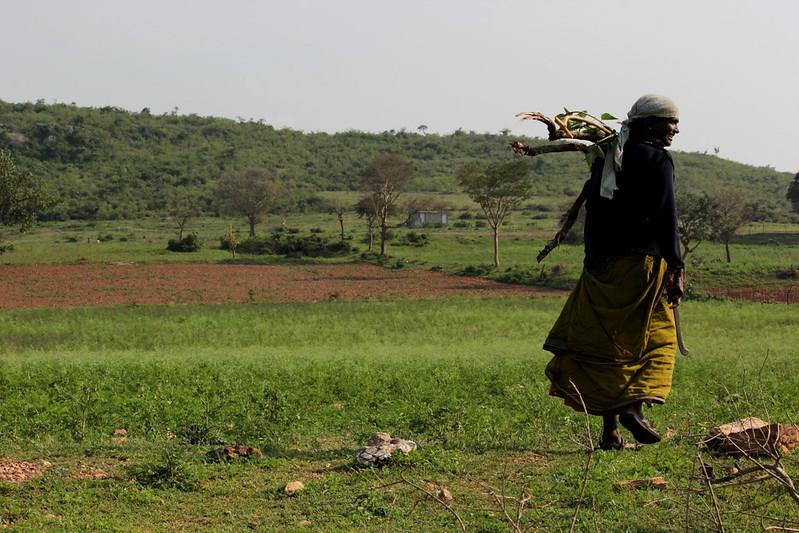
Many tribal communities such as the Kurumbas, Sholigas and Irulas, large population of scheduled caste, and other communities reside in or around protected areas (PAs) in the forest dependent SES. Courtesy: https://www.flickr.com/photos/indiawaterportal/
Pillur (Coimbatore): Tamil Nadu is considered among the worst performers in the country in the implementation of the Scheduled Tribes and other Traditional Forest Dwellers (Recognition of Forest Rights) Act, 2006 (FRA).
An example of this is the struggle going on by various indigenous communities fighting for land rights. One among these is the Irula community, which has been displaced and denied basic rights.
“We are fighting for our inherent right to access the forest in which we have been living for generations,” Mariyappan, Forest Rights Committee leader, tells NewsClick. “Without the Community Forest Rights (CFR), we are deprived of our right to even go into the forest and collect what we need,” he adds.
The Forest Rights Act, which was enacted in December 2006, came into force in December 2009 to give the forest-dwelling communities right of tenure and the power to manage and conserve their forests. FRA includes Individual Forest Rights (IFR), Community Forest Rights and Forest Management Rights, which provide the right to the individuals to access their land.
Pillur, a reserved forest area, has a cluster of 24 settlements belonging to the Irula community. Irulas are one of the six indigenous communities listed under the Particularly Vulnerable Tribal Groups (PVTG’s) in Tamil Nadu.
“We are basically dependent on non-timber products (NTP) like honey, bamboo, grasses, etc., that are produced in the forest. But, the CFR, which has not been issued to our forest land, prevents us from using the NTP for our livelihood,” says Mariyappan.
“We got around 86 titles for IFR a year ago, which allows us to stay in our ancestral lands, but the non-approval of CFR nullifies the rights we get out of FRA,” he adds.
Under Section (6)(1) of the FRA, the Forest Rights Committee (FRC) is allowed to initiate the process of land claims for both IFR and CFR.
Mariyappan says FRC’s decisions, which are taken after collective responses, are used to claim their usable area in the forest. “We draw a map which depicts the areas we use for collecting the NTP and other purposes and it has to be approved by the forest department and the RDO,” says Mariyappan, adding that often the “map we submit is rejected or sometimes they are said to be lost in the RDO office.”
Coimbatore District Revenue Division Officer (RDO) Ravichandran says: “We don’t receive the claims in a proper format, so we are forced to reject the claims”. When asked about the maps being rejected, he declined to answer, saying those matters are taken care of by his senior officials.
The Process
“Only the gram sabha has the right to determine the area of forest that has to be claimed,” says C.R Bijoy, an author who writes on resource and governance issues. “Other officials like RDO, collector and forest department can only record and issue the titles,” he adds.
When the claims for FRA are discussed and confirmed in the FRC, which has seven members, they are taken to the gram sabha meeting, where the claims are decided to be moved further. The next level is the sub-division committee, where the RDO, the forest ranger and the tehsildar decide on the claims and pass them on to the district level committee headed by the collector, the District Forest Officer (DFO), the ST welfare officer and a tribal representative. The last and final deciding stage is the State Level Monitoring Committee headed by the ST director and the Principal Chief Conservator of Forests (PCCF).
Incidentally, Ramkumar, sub-collector, ST welfare department, Coimbatore district, said they had not received any claims so far and “these must be stuck at the sub-division committee level itself.”
Ragu, a 27-year-old farmer, says the authorities themselves are uncertain of the process involved in the FRA. “The forest department has set up a Village Forest Committee (VFC), which comes under the forest department and is involved in managing the funds received from the government,” he says. “The VFC discredits the basic motive of FRA, as the forest department brings in the non-tribal people to lease the NTPs available in the forest.”
However, the indigenous people are involved in various other jobs. They are demanding the CFR be implemented as they don’t want to go out seeking work. “In the name of protecting the forests, non-tribal people are allowed by the forest department to get into the forests and plunder our resources,” says Rajesh, who cultivates crops in one of the 24 settlements.
“We are not able to market the harvest we yield in our own land as the forest department stops us at the check post asking for documents,” he adds.
The villagers are demanding basic facilities like schools, hospitals, roads, etc.
“That the tribal people are responsible for destroying the forest, a general propaganda by the forest department, is a hoax,” says C.R. Bijoy.
Mariyappan is firm. “We have to be given the title for our land as soon as possible to preserve the forest and to pass on our tradition to the next generation,” he says.
The writer is a student at Asian College of Journalism, Chennai.
Get the latest reports & analysis with people's perspective on Protests, movements & deep analytical videos, discussions of the current affairs in your Telegram app. Subscribe to NewsClick's Telegram channel & get Real-Time updates on stories, as they get published on our website.









